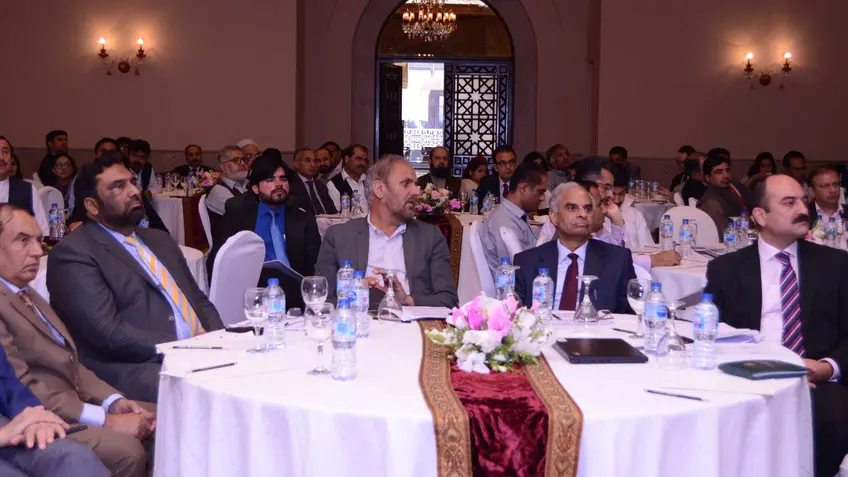Government and Partners Convene in Pakistan for Accelerated Action on Climate Change
As climate and development pathways are interlinked, it is fundamental to adopt a whole-of-society approach to reduce greenhouse gas emissions (GHG) and prepare for the consequences of a changing climate.
Islamabad, 24 April 2019 – Pakistan is one of the countries most vulnerable to the effects of climate change. In the past years, it has confronted devastating floods and droughts, which has severely threatened agricultural productivity and livelihoods. In 2016, with the goal of achieving sustainable and climate-resilient growth, the country announced its commitment to reduce up to 20 percent of its 2030 projected domestic GHG emissions. This is subject to availability of international support to meet the total abatement cost of about US$ 40 billion at current prices.
The Government of Pakistan has made tremendous efforts to establish a robust institutional structure and legal frameworks for coordinated implementation of the country’s climate commitments. The institutional setting comprises the Prime Minister Committee on Climate Change, chaired by the Prime Minister and National Climate Change Implementation Policy Committee which is mandated to provide guidance on climate policies This institutional structure illustrates the whole-of-government approach adopted by the Government of Pakistan to address climate and development issues.
With support from the NDC Partnership, the Government of Pakistan has developed a Roadmap for NDC Implementation, which will serve as the point of entry for the Government to elaborate an implementation framework – the Partnership Plan. The Partnership Plan will serve as a foundation for coordinated and harmonized implementation of climate action in Pakistan.
On 24 April 2019, high-level officials representing various ministries and provincial government departments, together with development and implementing partners, came together to further refine identified NDC-related priorities, needs, and requests, and to discuss technical and financial support needed for the country to accelerate climate action and implement its Nationally Determined Contribution (NDC) under the Paris Agreement.
The Honorable Advisor to the Prime Minister on Climate Change, Malik Amin Aslam, opened the workshop with the following words, “This stakeholder discussion is very important because Pakistan has now established its priority projects, and development partners have shown keen interest in matching up. And I would like to thank the NDC Partnership for providing this platform. The real test now is to make things happen on the ground. We have the political will to make it happen and we are at a stage where it can happen.”
The meeting resulted in a common understanding of government priorities and the nature of support sought in different sectors, including those which are cross-cutting. Participants agreed on key performance indicators to measure progress related to identified projects. They also identified responsible agencies and potential partners who can provide technical and financial assistance. It is only through an inclusive approach that tailored solutions can be designed to provide a safe and prosperous future for current and forthcoming generations.
About the NDC Partnership
The Islamic Republic of Pakistan is one of the early members of the NDC Partnership joining in December 2016 just weeks after the Partnership’s launch. The NDC Partnership is a global coalition of countries and institutions committed to ambitious action for climate and sustainable development. The Partnership has grown to include 93 member countries, 21 institutional members, and ten associate members since its launch at COP22 in Marrakech. NDC Partnership members work together to support developing countries in implementing and enhancing their NDCs through technical and financial assistance, capacity building, and knowledge sharing. For more information about the NDC Partnership, visit ndcpartnership.org.
For more information, please contact:
For the Islamic Republic of Pakistan:
- Irfan Tariq, Director General, Ministry of Climate Change, mirfantariq@gmail.com
- Faisal Baloch, Assistant Chief, Ministry of Planning, Development and Reform, baloch_faisal78@hotmail.com
